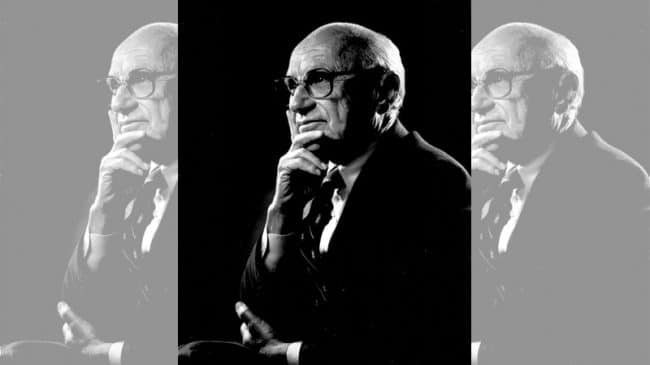Advancing Limited Government, Freedom, and Markets
By Mark Sanford, Governor of South Carolina
Any read through history demonstrates how essential limited government is to preserving freedom and individual liberty. What life experience shows us is that limited government is equally important in both making your economy flourish and in enabling citizens to get the most for their investment in government.
Let me be clear up front that in the long run the only way to make government truly efficient is to make it smaller, and this seems to me to be the real clarion call in highlighting the importance of privatization efforts. Efficiency and government are mutually exclusive in our system, and if our Founding Fathers had wanted efficiency I suppose they would have looked more closely at totalitarian systems. They wanted not efficiency, but checks on power in our republic.
In attempting to advance limited government, personal freedom and free markets over government fiat, here are a few things we have found in South Carolina:
Friedman, not freedom, sells: So much of why we should limit government is tied to freedom, but sadly we have found greater leverage in talking about how Thomas Friedman’s new-found and so-called Flat World necessitates limits to government. The point we have made continually over the past three-plus years is that for our state to survive and thrive in this new competition of 6.5 billion people across planet earth, we must make changes to our government cost structure.
Business principles trump ideology in advancing limited government: As an example, many of the successes that were built into the $100 million in last year’s budget savings in South Carolina were sold by talking about business principles. We argued that in the world of business, when your business model changes, you change with it. South Carolina used to institutionalize every mental health patient in the state on a single piece of property, but then the business model changed and the number of patients our state institutionalized dropped from several thousand to fewer than 200. Despite the change, we continued to hold on to the $50 million piece of property. We made the business case, and pointed out that if the vastly underutilized property were sold, there would be three dividends: one to mental health patients, another to taxpayers and a third to children in the local school district because the property would be back on the property tax rolls.
Similarly, in the business world, you constantly reshuffle the cards, from low performers to high performers. Government doesn’t. The case in point for us was the port in Port Royal, which does less volume in a year than the Port of Charleston does in a week. We said let’s reshuffle the cards and after a fair amount of consternation, the sale is now in motion. That’s been matched by our efforts to maximize return on investment to taxpayers through privatization of things as wide ranging as the state-owned car fleet, golf courses and even bait and tackle shops once run by state government prior to this administration’s arrival!
There is no substitute for time and focus: Milton Friedman once said the ultimate measure of government is what it spends. This is certainly not the only measure – but it is a very good place to start. As a consequence, we have spent a lot of time digging into the budget – in fact, ours is the first administration in South Carolina history to have ever produced an operational executive branch budget. It is said in Washington that Presidents often get diverted and focused on foreign policy because it is seemingly a loftier issue. At the state level, there are a wide variety of things to take a chief executive’s eye off budget matters, but I think we all need to remember the first real barometer on whether we are advancing the conservative cause of limited government is the budget. It was Paul Kennedy is his book The Rise and Fall of the Great Powers who talked about how not foreign policy but, ultimately, economic might was the driver of a nation’s viability in the long run.
Finally, you can go back to the Ten Commandments to see warnings on envy – on coveting what someone else has. Tragically, envy is part of human nature and in some cases it can be used as a tool in attempts to limit government. We frequently make the point that government shouldn’t grow faster than the people’s pocketbooks and wallets – and what we’ve found is people, when they compare their wallets with the growth of government, nearly always agree!
Long story short is that it occasionally gets lonely holding our position in the struggle between the growth of government and freedom – and in advancing marketbased solutions in areas such as education or health care. And, as a consequence, I’ve grown to that much more appreciate fellow soldiers in this greater battle for freedom.
On this front, Reason Foundation has been a great partner in our efforts to infuse a business mindset in government through competition and free market principles, to improve services and reduce costs – and in our greater efforts to bring change to South Carolina. Congratulations to Reason on 20 years of privatization success. The 20th anniversary edition of the Annual Privatization Report clearly establishes Reason’s role as the world leader in privatization and government reform ideas.
The Honorable Mark Sanford is the governor of South Carolina. He previously represented South Carolina’s 1st Congressional District in the U.S. House of Representatives from 1995 to 2001. This article is an excerpt from Reason Foundation’s Annual Privatization Report 2006, available online at www.reason.org/apr2006.
